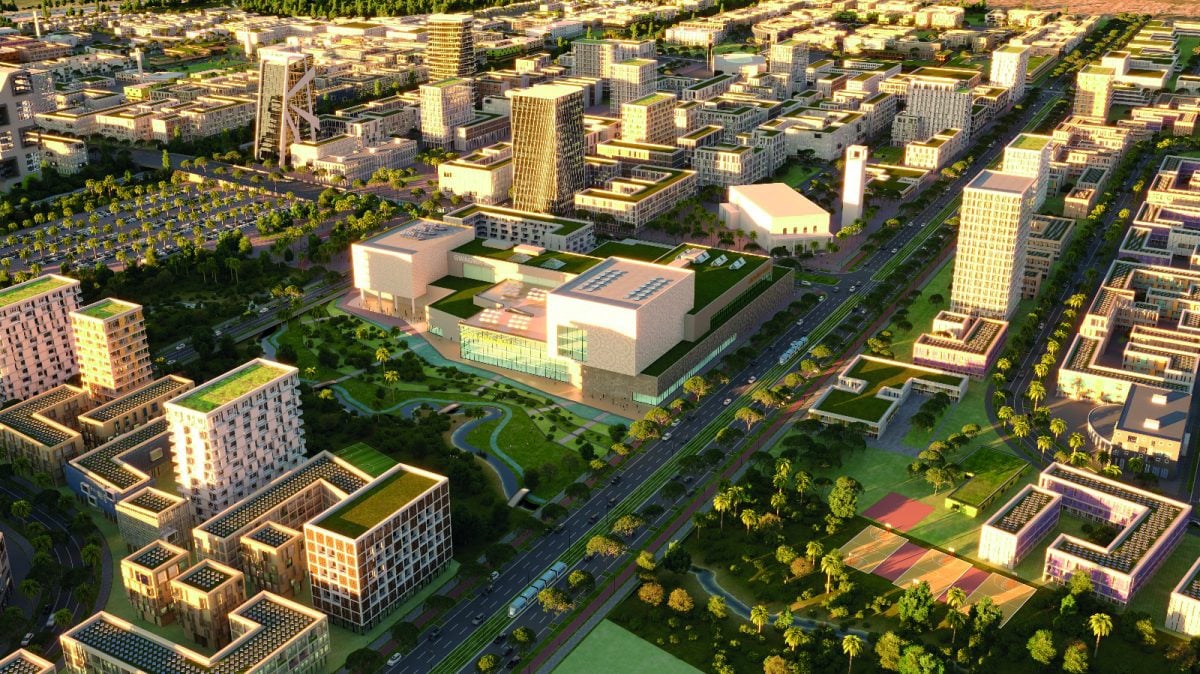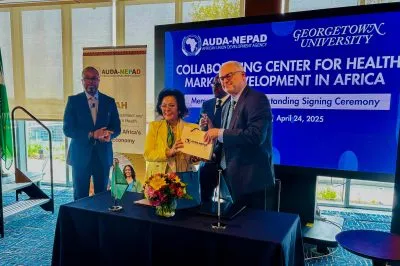Experts agree that one of the biggest trends that will shape Africa’s future is the growth of its (mostly) youthful population. According to the United Nations, the continent will be home to some 1.4bn people by 2050. Many of these people will want to live in urban areas, driven by the desire for jobs, better social services and generally better quality of life. Current trends have already led to sprawling urban centres around the continent, notably Kinshasa in Congo, Lagos in Nigeria and Cairo in Egypt. While these three are the only ones in the continent that currently qualify to be called megacities, it is expected other cities such as Cape Town and Johannesburg in South Africa, Dar Es Salaam in Tanzania and Nairobi in Kenya will soon earn this moniker.
The rise of megacities in Africa presents a complex set of challenges as well as promise for the continent’s future. One of the most pressing challenges associated with the rapid urbanisation and population growth in these cities is the urgent need for enhanced and more robust infrastructure. As the population grows, there will be an increasing strain on existing systems, such as transportation, sanitation, and utilities. Expanding and improving infrastructure is necessary to ensure that these urban centres can adequately support the growing population and maintain a high quality of life for their residents. Along with the growth in the general population, the African middle class is also set to expand, bringing with it increased demand for social and cultural amenities including recreational spaces, educational institutions, healthcare facilities and cultural centres that will now be within the reach of a greater number of people.
Related article
New opportunities for investment
The consequence of this surge in demand for infrastructure and amenities in Africa’s growing cities is new opportunities for substantial investments. For both domestic and international investors these cities are potentially lucrative markets for various industries, from real estate and hospitality to entertainment and healthcare. Capital inflow into these urban centres can stimulate economic growth and create job opportunities. Developing and maintaining modern infrastructure, such as efficient public transportation systems, sustainable energy sources, and resilient waste management solutions, also requires skilled professionals in various fields.
Similarly, providing a wide range of social and cultural amenities necessitates a workforce proficient in areas like education, healthcare, and cultural programming. The promise of huge investments and developing technical capabilities offers the potential for long-term economic growth and an enhanced quality of life for residents. This calls for policymakers, urban planners, and business leaders to work collaboratively to strike a balance between addressing the challenges and harnessing the promise of Africa’s megacities.
Already, there are promising signs around the continent, as existing and planned cities take on these challenges, buoyed by heavy investments and growing enthusiasm from local and national governments. Egypt is building a new, as yet unnamed, administrative capital, located 45km east of Cairo, with numerous features including 25 commercial districts, 21 residential districts, artificial lakes, a solar energy farm, a massive recreational park, a large theme park, a technology park, a new international airport, educational institutions, mosques, clinics, hospitals and hotels.
The total cost is undisclosed, but relocating government ministries, foreign embassies, parliament, and presidential palaces is estimated to cost $45bn. In Kenya, construction of a $14.5bn technology city in Machakos County has begun. Modelled after California’s Silicon Valley, it’s called the “African Silicon Savanna” or “Konza Technopolis.” This project is part of Kenya’s Vision 2030 economic development plan and aims to attract investors and tech talent. The city will focus on business process outsourcing, software development, data centres, call centres, manufacturing, and research institutions.
Great potential in Nigeria
In other cities, such as Nigeria’s Abuja, there is great potential for re-engineering and regeneration, which is the purpose of the Abuja midtown project. Nigeria already boasts of Lagos, Africa’s largest and most populous city. The city accounts for a third of Nigeria’s gross domestic product, an astonishing $136bn that dwarfs some of the country’s neighbours’ economic output.
The largest economy in Africa, Nigeria has vast natural resources and a growing middle class with increasing purchasing power, which creates opportunities for real estate development, retail, and other industries. In 2015, a report from global accounting firm, pwc predicted that Nigeria could, along with Indonesia and Mexico, become one of the top ten largest economies in the world, displacing France and the United Kingdom.
The West African powerhouse also has one of the most urbanised populations in the continent, with 213m citizens, or 53% of its citizens living in urban areas, according to the World Bank. The bank also estimates that this could increase to 70% by 2050. This will accentuate the already sharp deficit in infrastructure and amenities in the country’s major cities and there will need to be concerted and collaborative efforts between public and private sector players to address the growing challenge.
The Nigerian government has recognised the need for urban development and has launched initiatives to encourage private sector participation in city development projects. Public-private partnerships are being promoted to foster collaboration between government entities and private developers.
Its national urban development plan, first launched in 2019 and revised earlier this year, seeks to leverage private investment to achieve the federal government’s goals and opens the door for further investment. Working hand in hand with local and national authorities, private developers can bring new and innovative designs, sustainable materials and approaches and help rejuvenate existing cities, making them friendlier and more livable. In particular, there are opportunities to incorporate smart city concepts into Nigerian urban development projects to enhance quality of life for residents.
With a growing economy, urbanising population and infrastructure deficit, Nigeria’s cities present tremendous investment opportunities to private developers. As one of the largest emerging economies, the country is also a compelling destination for investment, including for developers with the capacity to transform urban dwellings. Collaboration between the public sector, private developers, and other stakeholders will be essential to harnessing this potential and driving sustainable urban development in Nigeria.
Want to continue reading? Subscribe today.
You've read all your free articles for this month! Subscribe now to enjoy full access to our content.
Digital Monthly
£8.00 / month
Receive full unlimited access to our articles, opinions, podcasts and more.
Digital Yearly
£70.00 / year
Our best value offer - save £26 and gain access to all of our digital content for an entire year!

 Sign in with Google
Sign in with Google 



